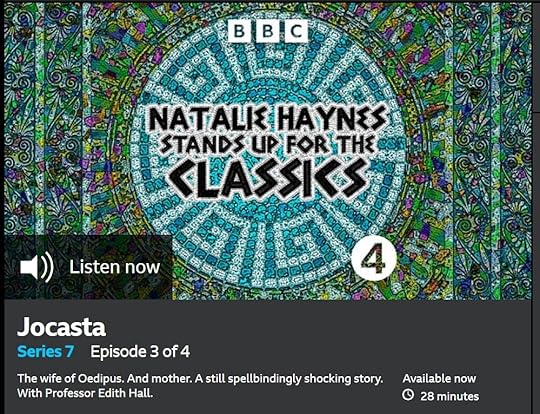What do you think?
Rate this book


336 pages, Hardcover
First published May 4, 2017
"But no one will remember me, the youngest daughter. I don't matter, do I?"
Homer's version of the myth is sketched out in only 10 lines of verse but is subtly different from that of Sophocles. There's no mention of the autoenucleation which forms a crucial climax in Oedipus the King or Oedipus Tyrannus to give it its Greek name. I can't stop you from calling it Oedipus Rex obviously, but since he isn't a Roman or a dinosaur, I can't bring myself to do it..The narration by Kristin Atherton in all voices for the audiobook edition was excellent.
